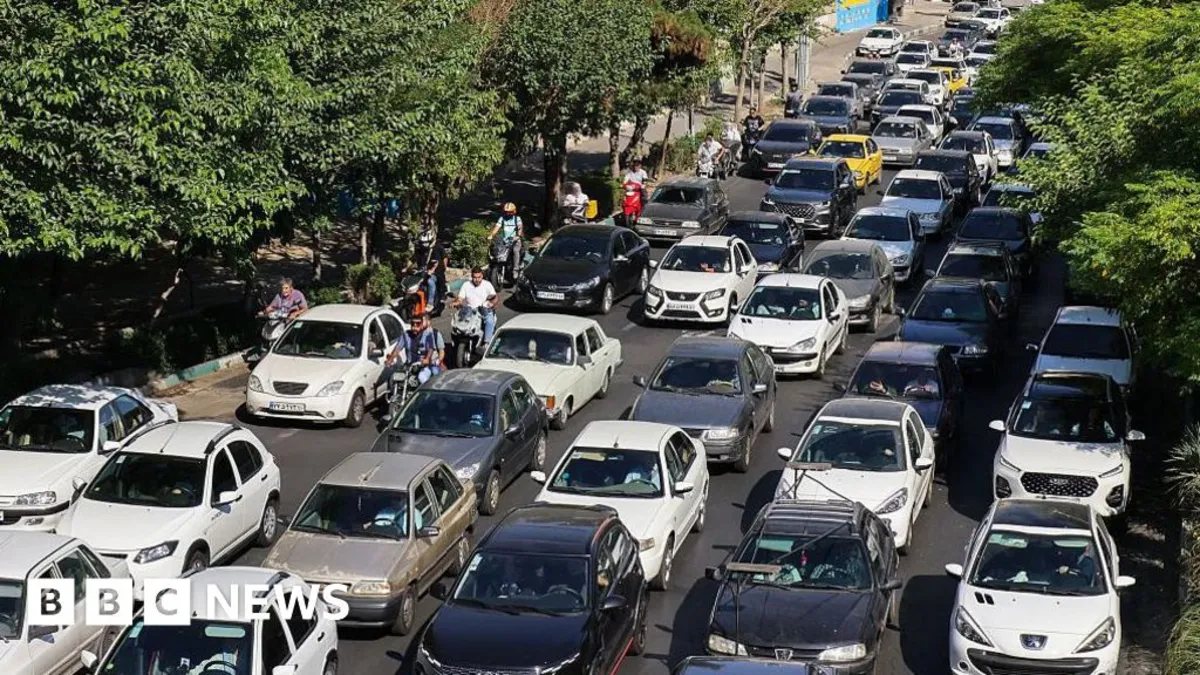
In the wake of Donald Trump's evacuation warning for Tehran, many Iranians are grappling with profound fear and sadness. The capital, with nearly 10 million residents, is now a city divided between those who are contemplating whether to remain in their homes or face the chaos of heavy traffic as they attempt to evacuate. Trump's statements, made just before he cut short his trip to the G7 summit in Canada, have amplified concerns regarding a potential escalation in tensions between Israel and Iran.
The reaction on social media has been palpable, with many residents of Tehran posting images of their homes, marking a poignant farewell to their city. This trend has gained traction on Persian-language platforms, where individuals share their emotional goodbyes. Due to restrictions imposed by the Iranian government, BBC journalists are currently unable to report directly from Iran. However, correspondents at BBC Persian have been actively gathering stories through social media interactions and interviews, albeit with anonymity to protect the identities of those sharing their experiences.
Some residents had already decided to leave Tehran before Israel issued evacuation orders for specific areas on Monday. One such resident, Arash, began his journey at 08:45, navigating through Qazvin, a town in northwestern Iran. What typically is a one-and-a-half-hour drive turned into a grueling five-hour ordeal. As the evacuation warning spread, the volume of people attempting to leave increased dramatically, with many facing traffic jams extending up to 14 hours and long lines at fuel stations.
Amidst the chaos, individuals are sharing their emotional farewells online. One person recounted packing keepsakes and necessities, watering plants, and hitting the road, expressing the unbearable difficulty of leaving home without knowing if they would ever return. Another lamented, “My home has never felt this sad. I don't know if I'll ever come back.” A user poignantly shared a photo of their workspace, stating, “I said goodbye to the things I worked so hard to earn... I hope they'll still be here when I return.”
Conversely, many residents in Tehran feel that following the evacuation orders is impractical. Narges, a local, has chosen to stay despite her growing fear. She described the roads as overflowing and the traffic as a nightmare since Trump’s comments. Living near a location targeted by Israel’s strikes, she is acutely aware of the risks involved. “It was terrifying, and so close,” she said, reflecting the anxiety many feel in the current situation.
Several residents have opted to remain in their homes due to various personal circumstances, such as caring for elderly parents, young children, or pets, or simply due to a lack of viable options. One pregnant woman, with a young daughter, expressed, “Everything I've built is here… where would I go?” Another woman, who is single, is hesitant to undertake the 800km journey to her family in Shiraz alone. One mother of two small children stated, “If everything is going to be ruined, then I'd rather my kids and I go with our home—because I don't have the strength to start over again.”